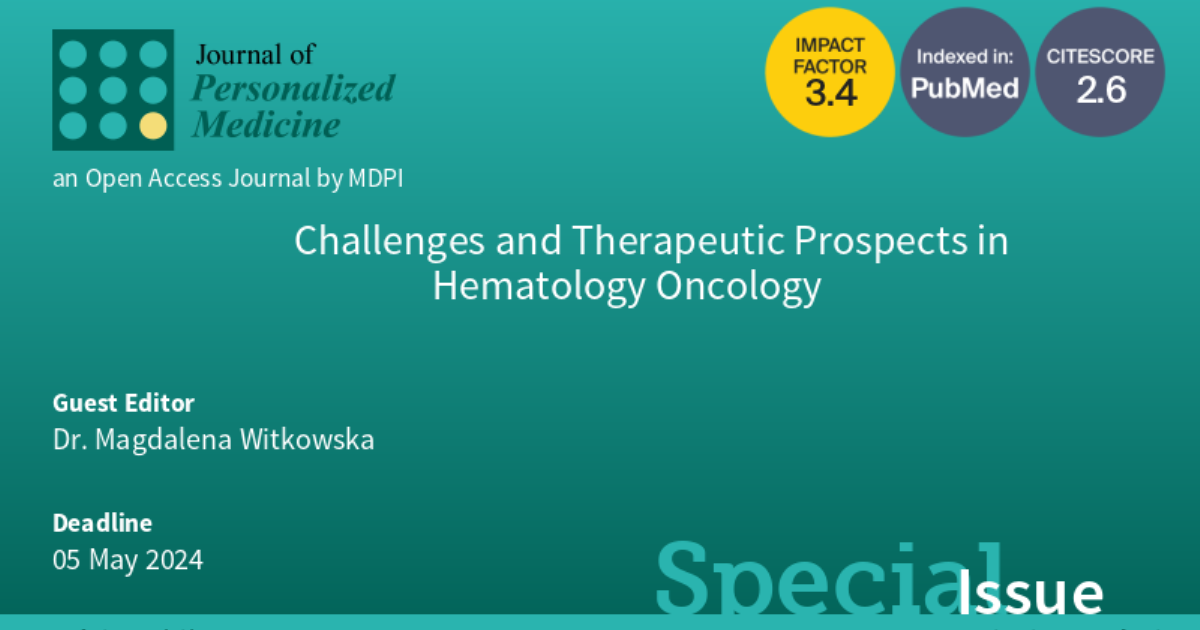Challenges and Therapeutic Prospects in Hematology Oncology
A special issue of Journal of Personalized Medicine (ISSN 2075-4426). This special issue belongs to the section "Mechanisms of Diseases".
Deadline for manuscript submissions: 5 May 2024 | Viewed by 1445

Special Issue Editor
Special Issue Information
Dear Colleagues,
Hematological diseases, usually persisting in the blood, lymphoma and/or bone marrow, render surgical and local treatments for solid tumors clinically ineffective. The presence and resistance of cancer stem cells (CSC) further make them difficult to cure. The development of new personalized therapies, such as molecularly targeted drugs, monoclonal and bispecific antibodies and CART-T cells, has improved the clinical outcome of lymphoproliferative diseases.
This Special Issue, entitled "Challenges and Therapeutic Prospects in Hematology Oncology", aims to update clinical aspects of hematologic malignancies, such as lymphoma, leukemia and multiple myeloma, with research articles as well as comprehensive review papers addressing the state of the art and the future perspectives of hematologic malignancies, focusing preferentially on innovative research in diagnosis, prognosis and personalized therapy.
Dr. Magdalena Witkowska
Guest Editor
Manuscript Submission Information
Manuscripts should be submitted online at www.mdpi.com by registering and logging in to this website. Once you are registered, click here to go to the submission form. Manuscripts can be submitted until the deadline. All submissions that pass pre-check are peer-reviewed. Accepted papers will be published continuously in the journal (as soon as accepted) and will be listed together on the special issue website. Research articles, review articles as well as short communications are invited. For planned papers, a title and short abstract (about 100 words) can be sent to the Editorial Office for announcement on this website.
Submitted manuscripts should not have been published previously, nor be under consideration for publication elsewhere (except conference proceedings papers). All manuscripts are thoroughly refereed through a single-blind peer-review process. A guide for authors and other relevant information for submission of manuscripts is available on the Instructions for Authors page. Journal of Personalized Medicine is an international peer-reviewed open access monthly journal published by MDPI.
Please visit the Instructions for Authors page before submitting a manuscript. The Article Processing Charge (APC) for publication in this open access journal is 2600 CHF (Swiss Francs). Submitted papers should be well formatted and use good English. Authors may use MDPI's English editing service prior to publication or during author revisions.
Keywords
- hematological malignancies
- lymphoma
- leukemia
- multiple myeloma
- immunotherapy
- molecular mechanisms
- cellular therapy
- targeted therapy






